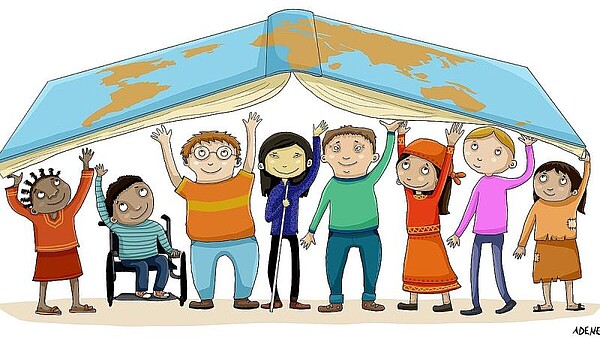Although the international community has set itself the goal of ensuring inclusive and equal education for all by 2030, more than a quarter of a billion children and young people have no access to education. Millions of others are marginalized within the education system because of their origin, identity or disability and are particularly affected by the consequences of the COVID 19 pandemic. This is the conclusion of the UNESCO World Education Report "Inclusion and Education: For All Means For All", which was presented on 22 June 2020. The report calls for targeted support for these people now.
"The pandemic has relentlessly exposed inequalities. Not all people have equal access to education. But education is a human right and not a luxury or only for those who can afford it. Education can help ensure that people who still live in poverty also have the chance to take their lives into their own hands with self-confidence and self-determination. The right to participate in society applies universally and regardless of gender, origin, social status, religious and sexual orientation or any impairment," says Thiemo Fojkar, Chairman of the Board.

